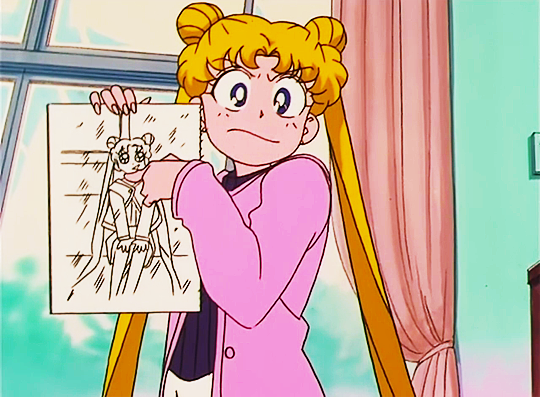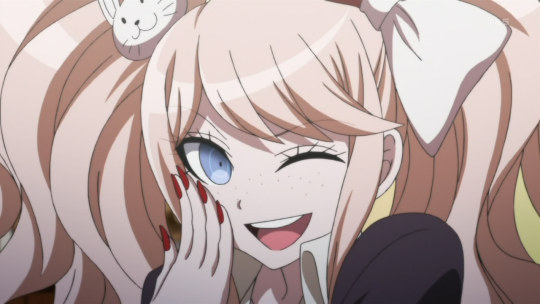Note
Hello I need help idk if I am an ISTJ or INTP. I am extremely chaotic and I procrastinate on the regular. I am not exactly a rule keeper either and authority isn't like crazy important to me. I LOVE my independence and others as well. I am not the collectivist type but I always get ISTJ! I like to challenge people, I am kindkind of outgoing and a goofball but I am not at all an extrovert help meeeee
Sorry for the late response! Have you tried figuring out your functions through descriptions? If so, what were the main functions you related to? I have a post on my blog that I’ll link at the end of this post to help you decipher functions, but if you have a clue on some of the functions you relate to the most (even if you aren’t sure on some of them or are mixing two up if you send me an ask on which you are having difficulties with it could actually help narrow down the type due to shadow functions) it could help with typing a lot cause quizzes generally aren’t the most accurate and may give you a completely different type from what you actually are. So far from the information on this post, I am seeing higher Ne usage, so that could possibly point you in a certain direction as well. Feel free to shoot me another ask after reading the functions and tell me which ones you relate to the most and we can try to go from there! :) And remember that MBTI extroversion/introversion isn’t necessarily social introversion/extroversion, it’s how you primarily project your energy so an MBTI extrovert projects their energy outwardly and an MBTI introvert projects their energy inwardly, but they may equally get socially drained.
https://istj-mom.tumblr.com/post/637375218374049792/myers-briggs-cognitive-functions-how-to-figure
9 notes
·
View notes
Text
Myers Briggs Cognitive Functions (How To Figure Out Your Myers Briggs Type)
It’s been awhile since I posted on here, but I wanted to post something that would be helpful. Often on the internet I see a lot of misconceptions about the Jungian cognitive functions, so I wanted to try and create more compact summaries of the functions as Jung described them. I’m currently waiting for my WikiHow article on how to figure out your cognitive functions to get approved (if it ever will), so for now I’ll just write out what I wrote for the article here.
I also added some extra notes for beginners on the bottom if you are completely new to typology and confused about what any of this means.
Without further ado, I’ll now get into the summaries.
Introverted Feeling. Jung describes introverted feelers as 'Still waters run deep' type of people. They are quite silent and inaccessible, and can be rather difficult to understand. They often act childishly or banal, and sometimes quite melancholic. They don't tend to shine, and rather keep a type of concealed air about themselves. They don't wish to change others or affect others and don't care to impress. People see them as having a sense of indifference or coldness to their behaviors. They prefer not to be emotional, but their emotions often end up infiltrating their unconscious mind. People may see them and not think that they are feeling, but their feelings are intensive rather than extensive. They develop into their depth. When they try to express sympathy, it often looks like coldness despite their intentions, due to it doing nothing visibly. They may express their aim in inconspicuous ways, preferring to put their passions into things silently. Due to this, this type may often be drawn to the arts. This type of person may particularly draw in extraverted types of people. When they are unhealthy, they may become mischievously cruel or unscrupulous in their ambition.
Extraverted Feeling. Jung describes extraverted feelers as people who follow the guiding lines of their feeling. Their personality often adjusts to external conditions, such as the people that they are talking to. Their feelings correspond with objective situations and generalized values. They often have requirements for the people that they tend to date, and these tend to be things that can be measured on an external level. People who value this function highly often repress their logic to make room for their feelings. This does not mean that this person does not think logically at all, and they could easily think a great deal. They just prefer to use their feelings as a guideline and use their logic to back up what they feel. This type of person would be described in the phrase "I cannot think what I don't feel." When this individual is unhealthy, they tend to become a servant to their feelings. These people may have the most obsessive and hideous thoughts during this time, which breeds even further doubt in them therefore furthering the control of emotions onto them.
Introverted Thinking. Jung describes introverted thinking types as being influenced by their subjective logical ideas. They will follow their ideas internally, seeking to understand their logic with intensity. This person may have a distinct feeling that they only matter in a negative way. They often will have an indifference to objective sources and prefer to stick to their subjective ideas. With this person, everything about them externally remains concealed. Their judgment appears cold, obstinate, arbitrary, and inconsiderate, simply because they are less interested in the objective reality than the subjective thoughts. Courtesy, amiability, and friendliness may be present in their behaviors, but they often display this with uneasiness. When it comes time for them to transplant their ideas into the world, they merely expose them and are annoyed when their ideas fail to thrive in objective reality. This person often lacks practical ability, and may even have an aversion to practical matters. If in their eyes their idea seems subjectively correct and true, it must also be in practice, and others have to bow to that truth. Hardly will they ever go out of their way to win anyone's appreciation of their ideas, especially if it be anyone of influence. At their unhealthiest, they may allow themselves to be exploited in negative ways if it means that they can continue their internal pursuit of ideas. Their convictions may become rigid and unbending, and they may become incredibly isolated and dependent on their internal world.
Extraverted Thinking. Jung describes extraverted thinkers as people whose constant aim is to bring their total life activities into relation with their intellectual conclusions. These intellectual conclusions are always oriented by objective facts or generally valid ideas. This type of person gives the deciding voice to objective reality, not only to themselves but to people around them as well. They determine good and evil through this measurement, as well as beauty and ugliness. All is right that corresponds with this formula, and all is wrong that contradicts it, and everything that is neutral to it is purely accidental. The person who refuses to obey this law is unreasonable or immoral in their eyes, and without a doubt has no conscience. Purely ethical aims may lead these individuals into critical situations, which sometimes have more than a semblance of being decided by quite other than ethical motives. These people may find themselves in deplorably compromising situations, or in dire need of rescue in this case. Their resolve to save often leads to them employing means which only tend to precipitate what they most desire to avoid. At their unhealthiest points, their desire to advance the salvation of man is so consuming that they will not shrink from any lying and dishonest means in pursuit of their ideal. They may neglect their health in pursuit of their ideals, even neglecting their family or the people that they care about. They may also become incredibly dogmatic, to a rigid extent.
Introverted Sensing. Jung describes introverted sensing as a type characterized by their peculiarities. They are an irrational type, as they are guided simply by what happens to them. They may stand out by the calmness and passivity of their demeanor, or by their rational self-control. They may have an illusory conception of reality, and in the worst-case scenario may even reach a complete inability to discriminate between reality and their subjective perception of reality. Due to their lack of knowledge of objective reality, they can often appear quite strange and odd in character due to their differing perception from objective reality. When others treat them badly, they may prefer to take a position of stubbornness and resistance than to full out aggressiveness. At their unhealthiest, they are incredibly aware of every ambiguous, gloomy, and dangerous possibility in their reality.
Extraverted Sensing. Jung describes extraverted sensing as a type characterized by their attentiveness to reality. Their sense of objective facts is extraordinarily developed. Their life is an accumulation of actual experience with concrete reality. This person does not believe themselves to be subject to sensation. They would actually ridicule that statement as being inconclusive since, from their standpoint, sensation is the concrete manifestation of life. Their aim is concrete enjoyment in objective reality, and their morality is similarly orientated. For in their eyes, true enjoyment has its own special morality, its own moderation and lawfulness, its own unselfishness and devotedness. This person may have little tendency for either reflection or commanding purpose. When they wish to create in objective reality, they do so aiming to fill their senses. They may be incredibly good at putting together aesthetics, or creating great sensational experiences. At their unhealthiest, they become crude pleasure-seekers or unscrupulous hedonists. They don't see reality as a beautiful thing anymore, but rather something to use to solely feed the endless need for new sensations. They may become incredibly jealous individuals running off of high anxiety. They may even turn morbidly primitive, or extremists in behavior.
Introverted Intuition. Jung describes introverted intuition as producing a peculiar type of person. This person may be a mystical dreamer and seer on one hand, and a fantastical crank and artist on the other. There is a general tendency of this type to confine themselves into the perceptive character of intuition. The intensification of their intuition naturally often results in an extraordinary aloofness of the individual from tangible reality, they may even be a complete enigma to their own immediate social circle. If they are an artist, they reveal extraordinary, remote things in their art. Their art may be lovely and grotesque, or whimsical and sublime. They may have visions, where they think to themselves "What does this thought mean for me and the world? What emerges from this vision for me and the world?" The pure intuitive who represses judgment will never meet this question fundamentally, because their only problem is the how of perception. They concern themselves with the meanings of their visions, and troubles less about its further aesthetic possibilities than about the possible moral effects which emerge from its intrinsic significance. At their unhealthiest, they may become quite impulsive, and struggle with unrestraint. They may also have issues talking to people about their visions, as they are often arguments without convincing reason.
Extraverted Intuition. Jung describes extraverted intuition as producing a person who is always aware where possibilities exist. They have a keen nose for things that have a promising future. They can never exist in stable, long-established conditions because they are always looking for new possibilities. Stable conditions often feel suffocating to them. They take on new subjects with extreme enthusiasm and intensity, only to abandon them cold-bloodedly and seemingly out of nowhere. As long as a possibility exists, this person feels bound to it. They have their own characteristic morality, which consists in a loyalty to their intuitive view of things. At their unhealthiest, they may rely entirely upon a perception of chance and possibilities. They may become incredibly attuned to hazards in their life. They may also become a hypochondriac as their fears and phobias increase.
What do I do now?
Order your functions. You will now need to order your functions from most used to least used. You will want to choose one thinking function, one feeling function, one sensing function, and one intuition function. Then order these based on the amount that you use each of them, from most to least.
In Jungian cognitive functions, there is a rule that each function in your stack has an opposite opposing it.
These opposing functions are thinking & feeling and sensing & intuition. Each person will have one of each function, and they can only have two introverted functions and two extraverted functions. You can't have two extraverted opposing functions, nor can you have two introverted opposing functions. You also can't have two extraverted functions paired right next to each other, or two introverted functions paired next to each other.
An example of this would be the function stack of ISTJ: They lead with introverted sensing, then their auxiliary function is extraverted thinking, then their tertiary function is introverted feeling, then finally their inferior function is extraverted intuition.
Another example is the function stack of ENFP. They lead with extraverted intuition, then their auxiliary function is introverted feeling, their tertiary function is extraverted thinking, and their inferior function is introverted sensing.
Remember that lesser valued functions will not be as apparent in your life. A high introverted thinking user may not relate to the extraverted feeling description of preferring emotion over logic, and that is to be expected. The function you value less is often suppressed for the greater function until you learn to use them in harmony.
Know the names of the cognitive functions.
Each function has a name as well as an abbreviation that is commonly used.
Introverted Feeling, also commonly referred to as Fi.
Extroverted Feeling, also commonly referred to as Fe.
Introverted Thinking, also commonly referred to as Ti.
Extroverted Thinking, also commonly referred to as Te.
Introverted Sensing, also commonly referred to as Si.
Extroverted Sensing, also commonly referred to as Se.
Introverted Intuition, also commonly referred to as Ni.
Extroverted Intuition, also commonly referred to as Ne.
The Types:
ISTJ - Si-Te-Fi-Ne
ISFJ - Si-Fe-Ti-Ne
ESTJ - Te-Si-Ne-Fi
ESFJ - Fe-Si-Ne-Ti
ISTP - Ti-Se-Ni-Fe
ISFP - Fi-Se-Ni-Te
ESTP - Se-Ti-Fe-Ni
ESFP - Se-Fi-Te-Ni
INTJ - Ni-Te-Fi-Se
INFJ - Ni-Fe-Ti-Se
ENTJ - Te-Ni-Se-Fi
ENFJ - Fe-Ni-Se-Ti
INTP - Ti-Ne-Si-Fe
INFP - Fi-Ne-Si-Te
ENTP - Ne-Ti-Fe-Si
ENFP - Ne-Fi-Te-Si
Learning how to narrow types. If you find that you have a function stack that is oddly laid out, such as Ni-Ti-Fe-Se, determine the closest likely type. In the case of those functions, the closest match would be INFJ. In the case where you relate to two extraverted functions of opposing function groups, you must determine which of the two you relate to more. For example, if you relate to both Te and Fe, try to narrow down which you think describes you better and choose the introverted function for the other one.
If you need any further help, feel free to shoot me an ask at any time.
#Myers Briggs#Myers Briggs Help#Masterpost#myers briggs masterpost#myers briggs functions#cognitive functions#jungian functions#carl jung#jungian cognitive functions#myers briggs cognitive functions#MBTI#mbti types#mbti masterpost#mbti cognitive functions#mbti functions#mbti typing#typology#personality types#personality typology#personality typing#istj#isfj#estj#esfj#intj#infj#entj#enfj#istp#isfp
88 notes
·
View notes
Text
Most Likely Enneagram and Instinctual Variants For Your MBTI Type (+Figuring Out Your Enneagram Type)
This is just for reference of what the most likely Enneagram types are for each MBTI type, but remember that any MBTI type can be any Enneagram type. (very important!!!) It’s an incredibly common misconception that certain MBTI types can’t be certain Enneagram types and that is in fact false. Yes it would be rare and odd to see an INFP 8, but it’s certainly not impossible and there are always exceptions. There is no technical correlation between Enneagram and MBTI, just similar traits between certain types of each system. When choosing an Enneagram type, choose based off of the fear that drives you. Many people when they are starting out on Enneagram will choose a type solely through common behaviors of the types. Whilst this can be a useful guideline on finding your type, the Enneagram is all about the fear that commonly drives you. This can ultimately manifest in different ways in each person, especially if you are a countertype version of your type, which in that case your behaviors would be irregular compared to the typical person of your type. Whether you are a countertype or not is generally determined by instinctual variants, I’ll attach a little guideline here now:
If your sp corresponds to your 1, 2, or 3, you are a countertype.
If your sx corresponds to your 4, 5, or 6, you are countertype.
If your so corresponds to your 7, 8, or 9, you are countertype.
It’s also worth noting that each enneagram type in your tritype corresponds to a variant. Another example here:
Say your tritype is 9w1-4w5-7w6, and you are a so/sx/sp. You would be a countertype 9 and a countertype 4. That means that your behavior will be varying levels of irregular for your enneagram type, however it’s most notable and generally talked about with 6′s.
With all of that being said, I’ll now go into the most common enneagram types and instinctual variants for each MBTI type based on surveys I’ve found and tallied.
ISFJ: 6w5, 2w3, 2w1, 9w1 | sp/so, so/sp
ESFJ: 2w3, 2w1, 6w5, 6w7 | so/sx, sx/so
ISTJ: 1w9, 1w2, 6w5, 5w6 | sp/so, so/sp
ESTJ: 8w9, 8w7, 3w2, 1w2 | sp/sx, sp/so
ISTP: 5w6, 5w4, 9w8, 6w5 | sx/sp, sp/so
ESTP: 8w7, 8w9, 7w8, 3w2 | sx/so, so/sx
ISFP: 9w1, 9w8, 4w5, 6w5 | so/sx, sx/sp
ESFP: 7w8, 7w6, 2w3, 3w2 | so/sx, sx/so
INFJ: 4w5, 5w4, 2w3, 2w1 | so/sp, sp/so
ENFJ: 2w3, 2w1, 3w2, 3w4 | sx/so, so/sx
INTJ: 5w6, 5w4, 1w9, 1w2 | sp/sx, sp/so
ENTJ: 8w7, 8w9, 3w2, 3w4 | sx/so, sp/sx
INTP: 5w4, 5w6, and significantly less common 9w1, 9w8 | sp/sx, sp/so
ENTP: 7w8, 7w6, 8w7, 8w9 | sx/so, so/sx
INFP: 4w5, 4w3, 9w1, 6w5 | sp/sx, sp/so
ENFP: 7w8, 7w6, 4w3, 4w5 | sx/so, so/sx
If you research and find that your Enneagram type happens to deviate from these most common types, you shouldn’t worry about it too much if it seems to fit your fears. Remember, it takes a lot of introspection to figure out the fear that truly drives your actions, so it may take some time to find an Enneagram type that suits you. It’s not something that you will probably be able to figure out in a day, but you will be able to figure it out through consistent introspection of your actions. I’d recommend doing some deeper research on countertypes, instinctual variants, and the fears that lead each type.
#enneagram#mbti#enneagram and mbti correlation#mbti guide#enneagram guide#enneagram countertypes#enneagram and mbti#enneagram mbti#guide#enneagram type guide#enneagram survey
55 notes
·
View notes
Text
Socionics MBTI Equivalents
In Socionics, many people tend to get the equivalent type functionally to their MBTI type. However, it’s not guaranteed that you will have the corresponding type. For example, many INFPs may be EII, but they may also be an IEI and that wouldn’t be so unusual. Almost any type combination is possible in theory, similarly to Enneagram. With that being said, some are much more common, and the most likely type to get would generally be your MBTI equivalent. For those of you new to Socionics, the rule is that extroverted types will have the same type name as MBTI (ie. ESFJ = ESFj) and in the introverted types the last letter will be swapped (ie. INFJ = INFp)
ISFJ: SEI (ISFp)
ESFJ: ESE (ESFj)
ISTJ: SLI (ISTp)
ESTJ: LSE (ESTj)
ISTP: LSI (ISTj)
ESTP: SLE (ESTp)
ISFP: ESI (ISFj)
ESFP: SEE (ESFp)
INFJ: IEI (INFp)
ENFJ: EIE (ENFj)
INTJ: ILI (INTp)
ENTJ: LIE (ENTj)
INTP: LII (INTj)
ENTP: ILE (ENTp)
INFP: EII (INFj)
ENFP: IEE (ENFp)
20 notes
·
View notes
Text
MBTI Types As Zodiac Signs
ISFJ: Cancer
ESFJ: Libra
ISTJ: Virgo
ESTJ: Capricorn
ISTP: Scorpio
ESTP: Aries
ISFP: Taurus
ESFP: Leo
INFJ: Pisces
ENFJ: Libra
INTJ: Scorpio
ENTJ: Leo
INTP: Aquarius
ENTP: Gemini
INFP: Pisces
ENFP: Sagittarius
I know some people have made posts like these before but I’m bored so I’m making one anyways cause we might have disagreed lol
#am i gonna keep making these?#yes#mbti#mbti types as#mbti types as zodiac signs#zodiac signs#zodiac#mbti types#mbti types meme#mbti meme#isfj#esfj#istj#estj#istp#estp#isfp#esfp#infp anime#enfj#in the soop#entj#intp#entp#infp#enfp#aries#cancelled#libra#corona virus
55 notes
·
View notes
Text
MBTI Types As Random Animals They Remind Me Of
ISFJ: Deer
ESFJ: Dog (specifically Golden Retrievers)
ISTJ: Bear
ESTJ: Eagle
ISTP: Snake (not in a shady way I swear 👀)
ESTP: Flamingo
ISFP: Guinea Pig
ESFP: Peacock
INFJ: Swan
ENFJ: Quokka (I’m very tempted to say dog again because fe doms all remind me of dogs but no)
INTJ: Owl
ENTJ: Tiger
INTP: Sloth
ENTP: Clownfish Tanuki 🙏
INFP: Raven
ENFP: Parrot
#mbti#mbti types#myers briggs#myers briggs meme#mbti meme#mbti types as animals#mbti types as#myers briggs memes#myers briggs as#idk what to even tag deez posts with#isfj#esfj#istj#estj#istp#estp#isfp#esfp#infj#enfj#intj#entj#intp#entp#infp#enfp
59 notes
·
View notes
Text
Iconic Anime Characters of Your Type: INFP








From top to bottom:
♥~♥ ~♥ ~♥ ~♥ ~♥ ~♥ ~♥ ~♥ ~♥ ~♥ ~♥ ~♥ ~♥ ~♥ ~♥ ~♥ ~♥ ~♥ ~♥ ~♥
[My Love Story!!] Yamato Rinko - INFP 9w1
[Fullmetal Alchemist] Alphonse Elric - INFP 9w1
[Kiss Him, Not Me] Kae Serinuma - INFP 9w8
[Watamote] Kuroki Tomoko - INFP 4w3
[Tokyo Ghoul] Kaneki Ken - INFP 9w1
[Boku no Hero Academia] Tamaki Amajiki - INFP 6w5
[Neon Genesis Evangelion] Shinji Ikari - INFP 9w1
[Beastars] Legosi - INFP 9w1
#my love story#my love story mbti#yamato rinko#yamato rinko mbti#infp#mbti#infp mbti#infp characters#infp anime characters#infp anime#alphonse elric#alphonse elric mbti#fullmetal alchemist mbti#kiss him not me#kae serinuma#kae serinuma mbti#kiss him not me mbti#watamote#watamote mbti#kuroki tomoko#kuroki tomoko mbti#tokyo ghoul#tokyo ghoul mbti#tokyo ghoul kaneki ken#kaneki ken mbti#kaneki ken#tamaki amajiki#tamaki amajiki mbti#my hero academia mbti#mha mbti
171 notes
·
View notes
Text
Iconic Anime Characters of Your Type: ENFP






From top to bottom:
♥~♥ ~♥ ~♥ ~♥ ~♥ ~♥ ~♥ ~♥ ~♥ ~♥ ~♥ ~♥ ~♥ ~♥ ~♥ ~♥ ~♥ ~♥ ~♥ ~♥
[Sailor Moon] Usagi Tsukino - ENFP 7w6
[Urusei Yatsura] Lum Invader - ENFP 2w1
[Howl’s Moving Castle] Howl Jenkins Pendragon - ENFP 4w3
[Danganronpa: The Animation] Junko Enoshima - ENFP 7w8
[Fate/Apocrypha] Astolfo - ENFP 7w6
[Danganronpa: The Animation] Yasuhiro Hagakure - ENFP 9w8
#Anime#ENFP#ENFP characters#MBTI#Myers Briggs#MBTI types#personality types#enneagram#anime mbti#mbti anime#usagi tsukino#sailor moon#usagi tsukino mbti#sailor moon mbti#lum invader#lum invader mbti#howls moving castle#howls moving castle mbti#studio ghibli mbti#howl pendragon#howl jenkins pendragon mbti#howl jenkins pendragon#junko enoshima#junko enoshima mbti#danganronpa mbti#danganronpa#astolfo#astolfo mbti#fate/apocrypha#fate mbti
68 notes
·
View notes